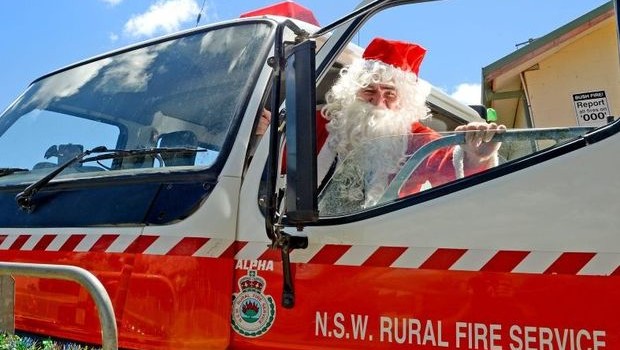This post raises several concerns, the foremost being the proposal that the cost of attending an outsourced first aid course be borne by the Brigade(s).
The following questions have been posted:
Does the NSW RFS desire to have as many members as possible qualified in first aid?
Is the proposal for Brigades of the NSW RFS to meet costs for outsourced courses approved or sanctioned by the NSW RFS?
Is there a proposal for the costs of other courses such as chainsaw being covered by Brigades and/or individual members?
Was the issue discussed with volunteer training groups and if so what was the outcome?
RFS Fatal Collision and Section 128 of the Rural Fires Act
Associate Professor, Dr Michael Eburn (PhD), publishes additional information relating to Section 128 of the Rural Fires Act on his Australian Emergency Law blog.
RFS Response to Volunteer’s Conviction for Fatal Traffic Accident
Associate Professor, Dr Michael Eburn (PhD), provides advice on his Australian Emergency Law blog.
1. A service such as the RFS should have a clear policy of when ‘response’ driving is permitted. It should be when a faster response is likely to significantly improve the outcome and is it necessary to save life, property or the environment. That will require consideration of the nature of the call, time of day, traffic environment etc. It may be appropriate for a first responder to a triple zero call to respond under lights and sirens, but once the service is ‘on scene’ the incident controller needs to consider whether an ‘urgent’ response will make a significant difference to the outcome.
2. The faster response must be necessary, not merely convenient.
3. When the criteria to justify response driving is not met, drivers must drive in accordance with the Australian Road Rules as adopted in your state/territory.
4. The fundamental obligation on all drivers is not to crash. Crashing an emergency service vehicle creates another emergency, delays the response to the first event and causes more trauma. People may die in floods, fires and other events but more people die in car accidents. Drivers should be reminded that no matter what they are responding to, the most important objective is not to crash.
Use of U-Turn Facilities and Cross-Overs
Service members are directed that crossover points or emergency U-turn bays on motorways or highways are not to be used. This applies to incident responses and normal traffic conditions, and even where a cross-over point is marked for use by emergency services.
NSW RFS vehicles should travel to the next exit ramp or point on the motorway and re-enter the roadway.
The only exceptions to this should be where a road is closed or operating under controlled conditions, such as traffic is being directed by police.
What are your thoughts on this?
WHS Consultation – are Volunteers being consulted?

It is very important that Volunteers comment on the DRAFT Service Standard in relation to the number of Health and Safety Representatives (HSRs) and the determination of workgroups.
You can have your say…
RFS volunteer exercising rights as a ‘worker’ – By Michael Eburn
The decision here is certainly giving effect to the principle that a volunteer is a worker and enjoys the rights and privileges once only given to employees. Regardless of the merits of Mr Bryant’s claims, he is certainly committed and dedicated and willing to put his money and his effort into what he must see as the best interest of the RFS and its workforce.
Insult to Injury – 4 Corners
This episode of 4 Corners is well worth watching.
PTSD impacts upon many of our emergency service workers. We are seeing poor performance from State Governments and insurance companies as they shrug off, dismiss and avoid dealing with these matters.
Karuah Rural Fire Service battles own crumbling shed
BEYOND frustrated with sub-standard conditions Karuah Rural Fire Service has broken ranks in its fight for a new shed.
The acting captain Ken Smee has revealed a long list of problems from structural cracking to flooding and improper facilities for men and women working in close quarters.
“We’ve done everything by the book until now and it’s got us nowhere,” he said.
Workplace Injury – from the VFFA Magazine
A workplace injury case history…
A recent case was presented by a current RFS Volunteer to a VFFA Executive Meeting and it showed the utter frustration of a Volunteer being injured on the fire ground. The Volunteer’s injury was an ongoing one and over the years the RFS had accepted every medical certificate from the treating doctor allowing the Volunteer to go on the fire line with restrictions in place as per the certificates, Work Cover also accepted the certificates. The Volunteer recently needed to have surgery which had the Volunteer requiring four months of work. Although the Volunteer was entitled to workers compensation payments, there was still quite a significant short fall compared to their regular income.
Post Christmas reflections on the “Santa Run”

Does your Brigade participate in a “Santa Run”?
Did you know that the RFS published a “Santa Run Frequently Asked Questions” document?
Do you think that this type of RFS intervention is necessary?
How much consultation with volunteer firefighters was obtained before preparing this document?
Are the days of freshly made sandwiches, cakes and slices supplied by the locals numbered?
In this article we have a look at an RFS tradition (the Santa Run). The RFS is acting in a risk-averse manner but we are asking our readers to provide their thoughts via the comments section. Any sensible comments (for and against) will be published.
